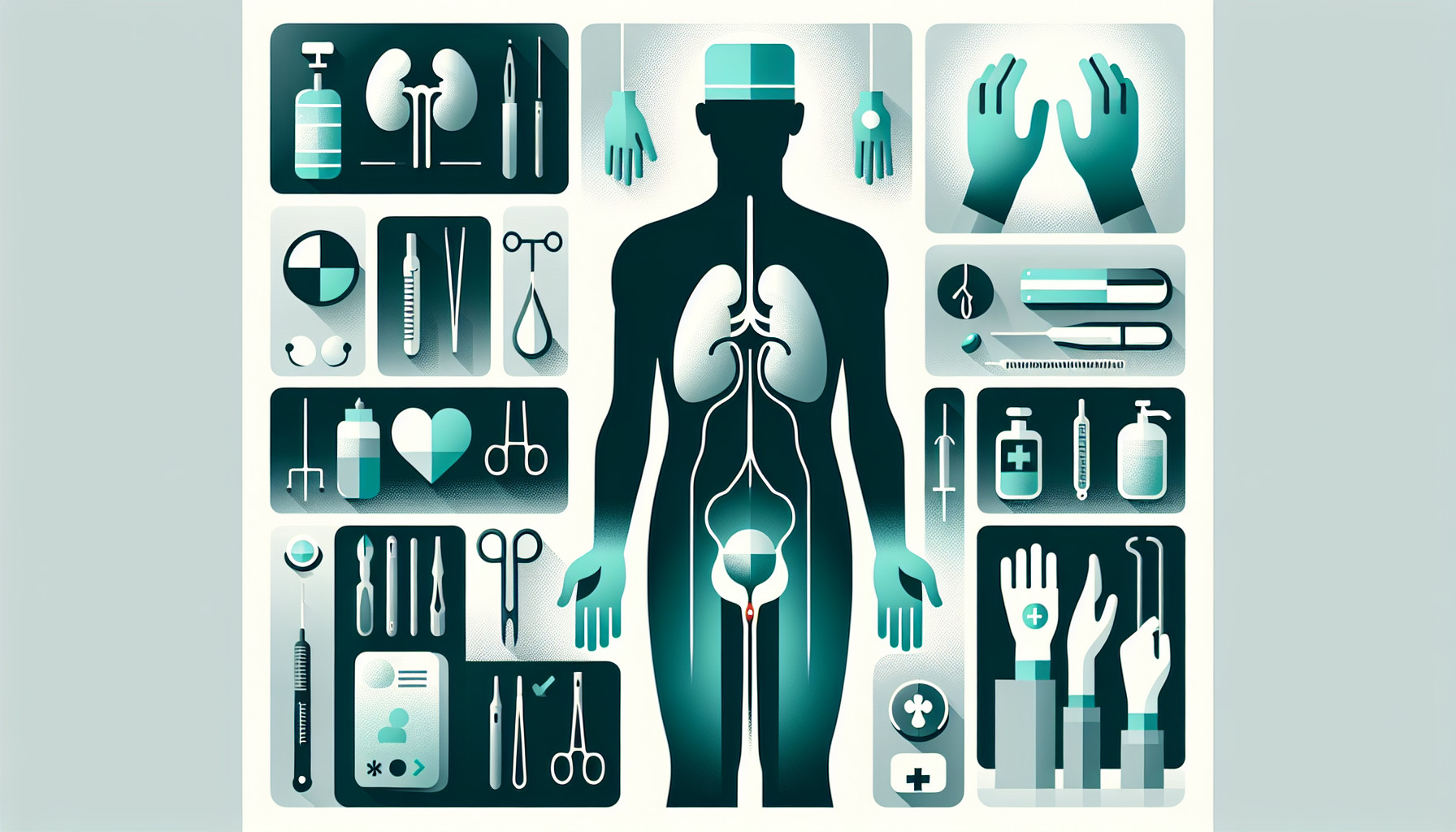Our Summary
This research paper is a review of various studies on the use of robot-assisted partial nephrectomy (RAPN), a kind of kidney surgery performed with the help of robots, compared to traditional open partial nephrectomy (OPN), which is done manually by surgeons. The researchers looked at various aspects, including how long the surgery took, how much blood was lost, the length of hospital stay, and the overall effectiveness of the surgery.
They found that in many aspects, RAPN was either similar to or better than OPN. For instance, in some studies, RAPN had fewer complications, and in others, the outcomes were similar. The time taken for surgery and the period of warm ischemia (a phase when the kidney is deprived of blood) were generally longer in OPN. Also, blood loss and length of hospital stay were generally higher in RAPN.
In terms of kidney function after surgery, both methods were similar. However, the researchers concluded that while RAPN shows promise, more well-designed studies with long-term follow-ups are needed to be sure of its benefits and potential drawbacks.
FAQs
- What is the difference between robot-assisted partial nephrectomy (RAPN) and traditional open partial nephrectomy (OPN)?
- Based on the reviewed studies, how does RAPN compare to OPN in terms of surgery duration, blood loss, and length of hospital stay?
- What further research is suggested by the researchers to conclusively determine the benefits and potential drawbacks of RAPN?
Doctor’s Tip
One helpful tip a doctor might give a patient about nephrectomy is to make sure to follow all pre-operative and post-operative instructions provided by the medical team. This may include things like fasting before surgery, taking medications as prescribed, and following proper wound care instructions after surgery. It’s also important to attend all follow-up appointments and communicate any concerns or changes in symptoms to your healthcare provider. By following these guidelines, you can help ensure a successful recovery and optimal outcome from the procedure.
Suitable For
Patients who are typically recommended nephrectomy include:
Patients with kidney cancer: Nephrectomy is often recommended for patients with kidney cancer, especially if the cancer is localized to the kidney and has not spread to other parts of the body.
Patients with kidney stones: Nephrectomy may be recommended for patients with large or recurrent kidney stones that cannot be treated with other methods.
Patients with kidney damage: Nephrectomy may be recommended for patients with severe kidney damage or disease that is affecting their overall health and quality of life.
Patients with a non-functioning kidney: Nephrectomy may be recommended for patients with a non-functioning kidney that is causing pain, infection, or other complications.
Patients with a kidney transplant: Nephrectomy may be recommended for patients who have received a kidney transplant that is not functioning properly or is causing complications.
Patients with polycystic kidney disease: Nephrectomy may be recommended for patients with polycystic kidney disease who have large, painful cysts that are affecting kidney function.
Overall, the decision to recommend nephrectomy for a patient will depend on their specific condition, overall health, and individual circumstances. It is important for patients to discuss the risks and benefits of the procedure with their healthcare provider before making a decision.
Timeline
Before a nephrectomy, a patient typically undergoes various tests and assessments to determine the necessity of the surgery and to assess their overall health. This may include blood tests, imaging studies, and consultations with various healthcare providers.
During the surgery itself, whether it is a traditional open partial nephrectomy or a robot-assisted partial nephrectomy, the patient is under anesthesia and the surgeon removes part or all of the kidney. The surgery can take several hours, and the patient may lose some blood during the procedure.
After the surgery, the patient is closely monitored in the recovery room and then transferred to a hospital room for further observation. They may experience pain and discomfort, and will likely be given pain medication to manage this. The length of hospital stay can vary, but most patients are able to go home within a few days to a week after the surgery.
In the weeks and months following the nephrectomy, the patient will have follow-up appointments with their healthcare provider to monitor their recovery and kidney function. They may need to make lifestyle changes, such as adjusting their diet or activity level, to support their remaining kidney and overall health.
Overall, the goal of a nephrectomy is to remove a damaged or diseased kidney and improve the patient’s quality of life. With proper care and management, most patients are able to lead full and healthy lives after the surgery.
What to Ask Your Doctor
Some questions a patient should ask their doctor about nephrectomy include:
- What are the benefits of robot-assisted partial nephrectomy compared to traditional open partial nephrectomy?
- What are the potential risks and complications associated with nephrectomy surgery?
- How long will the surgery take, and what is the recovery process like?
- What is the expected outcome in terms of kidney function after the surgery?
- Are there any long-term effects or considerations to keep in mind after undergoing nephrectomy?
- What is the experience and success rate of the surgeon in performing nephrectomy procedures?
- Are there any alternatives to nephrectomy that should be considered?
- What is the likelihood of needing additional treatments or surgeries in the future after undergoing nephrectomy?
- What lifestyle changes or precautions should be taken following nephrectomy surgery?
- Are there any support groups or resources available for individuals who have undergone nephrectomy surgery?
Reference
Authors: Grivas N, Kalampokis N, Larcher A, Tyritzis S, Rha KH, Ficarra V, Buffi N, Ploumidis A, Autorino R, Porpiglia F, van der Poel H, Mottrie A, de Naeyer G; J-ERUS/YAU Robotic Urology Working Group. Journal: Minerva Urol Nefrol. 2019 Apr;71(2):113-120. doi: 10.23736/S0393-2249.19.03391-5. Epub 2019 Mar 18. PMID: 30895768
